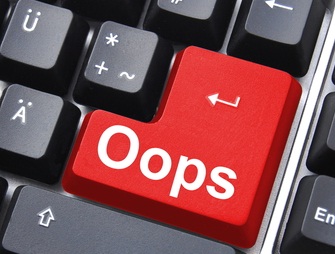Mistakes can cause a lot of damage in all kinds of work, be it in homework, tests, in everything you do and build. One slight mistake and the next thing you notice, everything starts tumbling down. This kind of thing can apply to companies and businesses; the mistakes they make can suddenly devalue the company itself, which can affect their work and the products and services they provide. Technology companies are susceptible to this as well; their mistakes end up with them missing out on what could have been a successful venture for them. Here are 8 of those mistakes.
Failing to Register a Federal Copyright for the Product They Made :
Suppose one of the products the company released is being copied by a competitor. If the company was unable to register a copyright for the product, everyone else is free to claim the product as if they made it themselves. Registering the product essentially ensures the company’s ownership of the product, and isn’t all that hard to do.
Broad Licensing :
Suppose a technology company manage to license one of their products to a specific part of their client organization, but failed to draw up the license grant in the agreement. This ends up with that specific group sharing the product to the whole organization with no extra fees coming from their side. This basically meant that you unwittingly granted the whole organization full rights to your product, when the intention was to license it only to a specific group within the organization.
Failing to Provide Detailed Support Policies :
Support policies should not sound vague and non-descriptive. Here, customers are unsure about the customer service for the product, and more often than not, the customer would spend more time explaining the problem to customer service than actually getting an answer. As such, companies should set expectations in their support policies so that customers will know what to expect from the company.
Too Much Freedom in Giving Away Intellectual Property Ownership :
When customers pay for something, they’re essentially paying to own the product. In this case, giving away the intellectual property ownership too freely can prevent the company from using the product for other companies, as someone else is the owner of that product now and that the company can no long do anything with it.
Broad or Subjective Acceptance Testing :
It is common for customers to test the product first before they purchase it. However, it becomes a problem when the customer has sudden unreasonable expectations of the product, and will not pay for the product until the company can somehow meet those expectations. To avoid this, objectify reasonable standards in the contract. This will save a lot of time and effort.
Source Code Release Conditions too Liberal :
In technology, the source code is the most important piece that ties it all together, but many companies keep giving it away for free through a source code escrow agreement with the customer. A lot of customers will want the source code to be given to them if the company stops supporting the product, but some of the source code will likely see use in their other products, and those customers can use that code to duplicate what you are making. This can be avoided by creating specific conditions when it comes to releasing your code.
Technology is Undervalued :
Technology companies have a tendency to undercharge their products so they can enter the market. This ends up undervaluing the technology they make, which can earn the companies less money and infamy, giving customers the idea that the company is “cheap”.
Using License Agreements that Don’t Fit With the Business Model:
While creating a license on your product, as well as obligations and allocating the possible risks, can be a rather difficult thing to do, it is a generally bad idea to replicate the form agreement of a different company and add it to your own. This would expose you to even more risks, but it also violates the other company’s copyright. Make sure that the agreement is aligned with the company’s business model.



